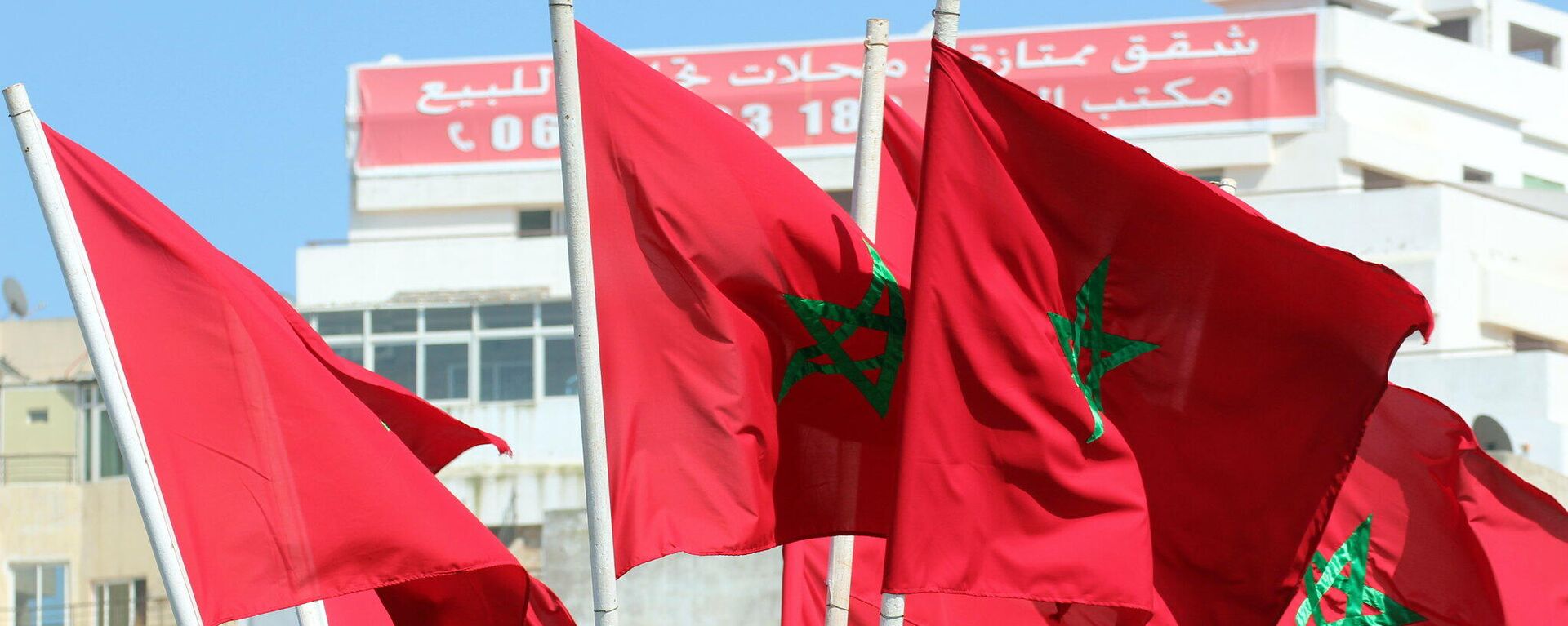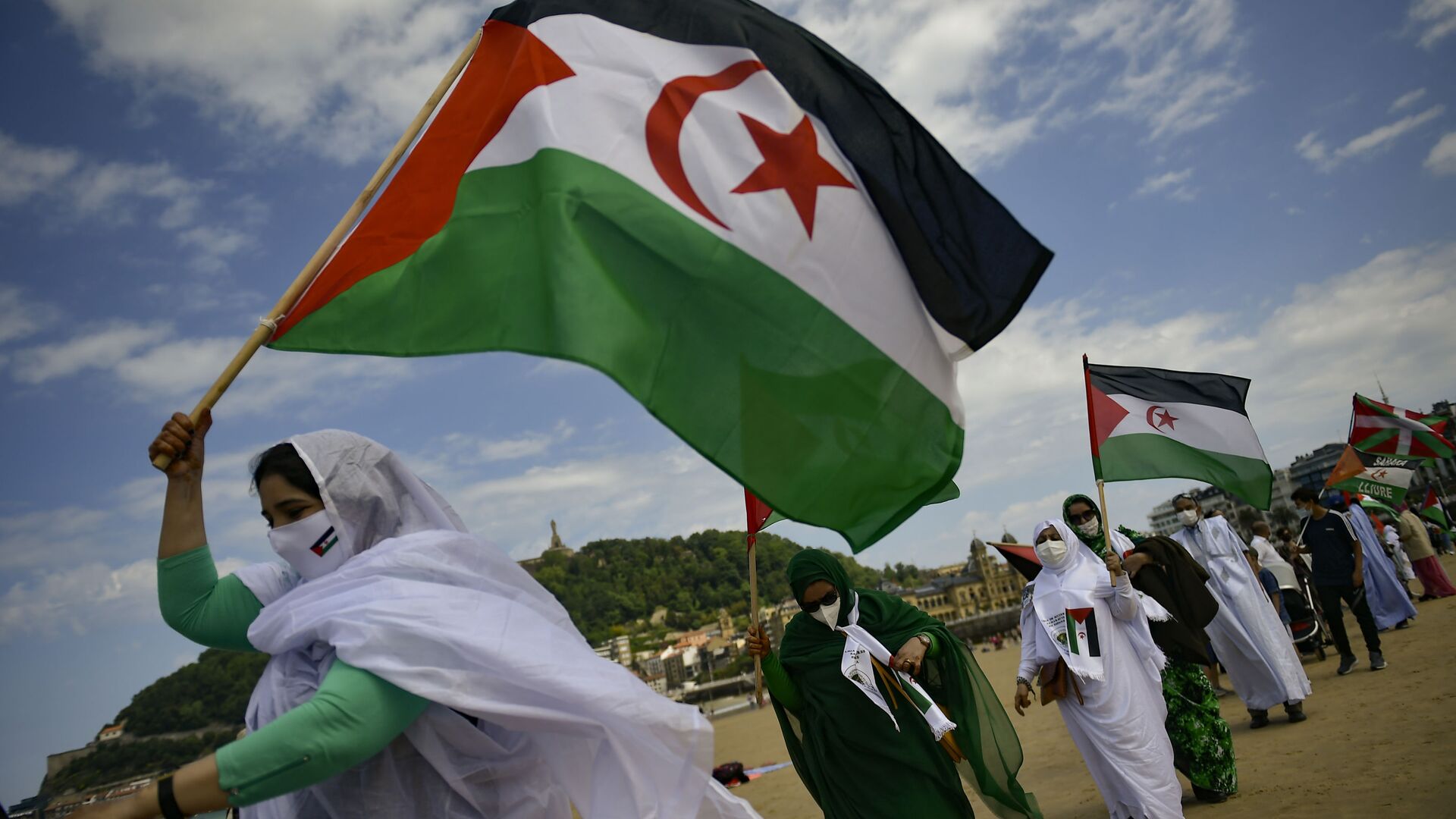https://sputnikglobe.com/20220826/morocco-recalls-ambassador-to-tunisia-over-presidents-meeting-with-polisario-front-leader-1100045551.html
Morocco Recalls Ambassador to Tunisia Over President's Meeting With Polisario Front Leader
Morocco Recalls Ambassador to Tunisia Over President's Meeting With Polisario Front Leader
Sputnik International
MOSCOW (Sputnik) - Morocco has recalled its ambassador to Tunisia for consultations after Tunisian President Kais Saied met with the leader of the rebel... 26.08.2022, Sputnik International
2022-08-26T20:46+0000
2022-08-26T20:46+0000
2022-11-23T11:37+0000
africa
morocco
tunisia
polisario front
north africa
https://cdn1.img.sputnikglobe.com/img/07e5/06/0f/1083156521_0:160:3073:1888_1920x0_80_0_0_6d23a5759aaff904fbef19227a8866b8.jpg
According to the foreign ministry's statement, Saied met with Ghali earlier on Friday on the sidelines of the Eighth Tokyo International Conference on African Development, also known as TICAD 8, in Tunisia.According to the ministry, the meeting showed that "Tunisia has doubled its negative attitudes and actions toward Morocco."Western Sahara, a former colony of Spain, was transferred to the control of Morocco and Mauritania in 1975. A year later, the Polisario Front, a local nationalist movement, proclaimed the Sahrawi Arab Democratic Republic on the territory of Western Sahara. Since then, the Polisario Front has been fighting with the Moroccan forces over the control of the region. Currently, Morocco controls some 80% of Western Sahara, with 20% being under the control of the Polisario Front.An UN-brokered ceasefire deal was reached in 1991, and the UN Security Council voted in favor of holding a referendum to define the status of the territory. However, the Moroccan authorities have since been opposing any vote that includes independence as an option, supporting the idea of limited autonomy only.
https://sputnikglobe.com/20220825/us-approves-141mln-ground-command-control-systems-deal-with-morocco---state-dept-1100004213.html
africa
morocco
tunisia
north africa
Sputnik International
feedback@sputniknews.com
+74956456601
MIA „Rossiya Segodnya“
2022
Sputnik International
feedback@sputniknews.com
+74956456601
MIA „Rossiya Segodnya“
News
en_EN
Sputnik International
feedback@sputniknews.com
+74956456601
MIA „Rossiya Segodnya“
Sputnik International
feedback@sputniknews.com
+74956456601
MIA „Rossiya Segodnya“
morocco, tunisia, polisario front, north africa
morocco, tunisia, polisario front, north africa
Morocco Recalls Ambassador to Tunisia Over President's Meeting With Polisario Front Leader
20:46 GMT 26.08.2022 (Updated: 11:37 GMT 23.11.2022) MOSCOW (Sputnik) - Morocco has recalled its ambassador to Tunisia for consultations after Tunisian President Kais Saied met with the leader of the rebel Polisario Front, Brahim Ghali, the Moroccan Foreign Ministry said on Friday.
According to the foreign ministry's statement, Saied met with Ghali earlier on Friday on the sidelines of the Eighth Tokyo International Conference on African Development, also known as TICAD 8, in Tunisia.
"The Kingdom of Morocco has decided not to participate in the TICAD 8 summit in Tunisia, scheduled for August 27-28. The Moroccan ambassador to Tunisia has also been summoned for consultations," the ministry said, as quoted by the Hesspress news portal.
According to the ministry, the meeting showed that "Tunisia has doubled its negative attitudes and actions toward Morocco."

25 August 2022, 22:09 GMT
Western Sahara, a former colony of Spain, was transferred to the control of Morocco and Mauritania in 1975. A year later, the Polisario Front, a local nationalist movement, proclaimed the Sahrawi Arab Democratic Republic on the territory of Western Sahara. Since then, the Polisario Front has been fighting with the Moroccan forces over the control of the region. Currently, Morocco controls some 80% of Western Sahara, with 20% being under the control of the Polisario Front.
An UN-brokered ceasefire deal was reached in 1991, and the UN Security Council voted in favor of holding a referendum to define the status of the territory. However, the Moroccan authorities have since been opposing any vote that includes independence as an option, supporting the idea of limited autonomy only.



